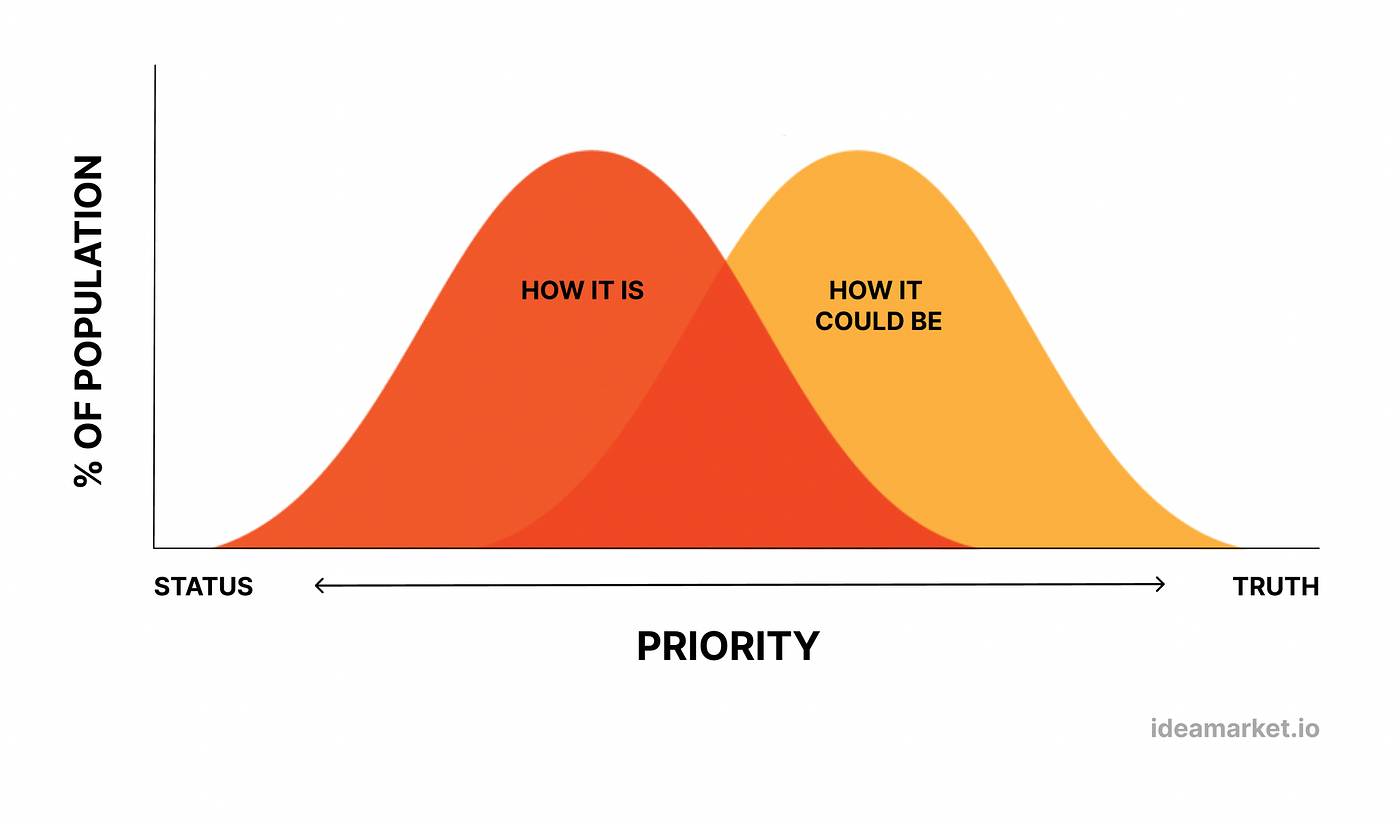Status vs Truth
This seems self-evident: Our ability to care about stuff is finite, so any care that isn’t truth competes with it.
Therefore, social status and intellectual honesty have an inverse relationship, like price and supply.
And why wouldn’t this be the case? Status is something you could lose. And the more you have to lose, the harder it is to prioritize truth.
Unfortunately, in the battle between status and truth, truth starts at a disadvantage: we’re biologically wired to care about social status, but caring about truth requires deliberate effort.
Bad actors often exploit this disadvantage, encouraging us to prioritize social and tribal status concerns over truth concerns. Such status-hacking is a cornerstone of modern propaganda. Consider the factual absurdity, for example, of calling Bernie Sanders endorser Joe Rogan “far-right” in response to his criticisms of COVID policy.
These tribal and status labels are not descriptive — they’re prescriptive. They instruct our emotions, not through rational argument but through threat of social humiliation: “Reject this person!”
“Pay no attention to the man behind the curtain,” the Wizard of Oz once said. Today, he’d add “…or you’re a conspiracy theorist!”
Tyrants hack our minds, by hacking our hearts.
In the internet age, you can’t stop people from looking behind the curtain by force. But if you turn not-looking into a status symbol, people won’t even want to look.
This helps explain why so many highly intelligent people have fallen victim — intelligence offers no protection from the emotional assault of modern propaganda. Only emotional qualities, like bravery and honesty, do.
Rationality is an emotional achievement — no amount of intellectual horsepower can overcome a preference for delusion. And collectively, we are only rational to the extent our environment exacerbates or diminishes our preference for delusion.
Hypothesis
Consider the standard VC model: make 100 bets, and the 1 good one pays for 99 bad ones. Everyone understands this!
Adopting the “VC model of credulity” could obsolesce the battle between status and truth.
The VC model of credulity entertains information on the basis that being right 1 time, will outweigh the cost of looking foolish 99 other times.
The VC model of credulity pits real benefits against social costs on a level playing field, so we can perform the cost/benefit analysis on purpose instead of unconsciously.
Adapting investment frameworks for belief management means appreciating disruptions like Bitcoin, Jeffrey Epstein, UFOs, and pandemics more quickly.
“Rationality is risk management,” said Taleb. What if we take that seriously?

Last updated
Was this helpful?